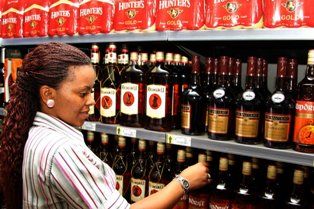
South Africa’s extended alcohol ban will cost jobs, businesses warn
The Beer Association of South Africa (Basa) has rejected the government’s decision to extend the ban on the sale of alcohol and has warned that many small businesses in the sector will simply not survive the ban.
The group said that 30% of local breweries have already been forced to permanently shut their doors and 165,000 people have already lost their jobs.
“An extended ban on alcohol will destroy many of the remaining small businesses while doing untold economic damage to the beer sector in general, and the 415,000 livelihoods it supports.
“Over 100,000 people have already slid into poverty because of the alcohol ban in the beer industry alone.”
Basa said it is aware of the immense pressure Covid-19 has placed on our healthcare system and the need for urgent interventions to curb the spread of Covid-19. However, this cannot be at the expense of people’s livelihoods, it said.
Our members, especially small business owners and their employees, now have no way to put food on the table, and care for their loved ones who may also fall ill.
“We are also deeply concerned that the legitimate beer sector will never recover from this extended ban, providing a further boost to those who engaged in the illicit manufacture and trade of alcohol.
“Already prior to Covid-19, World Health Organisation estimates indicated that a quarter (24%) of all alcohol consumed in South Africa was sold illicitly. We believe that illicit trading will now increase as criminal syndicates begin to entrench themselves, just as Al Capone did in prohibition-era America.”
The association said that it will be requesting an urgent meeting with the Presidency and various Ministries to unpack the rationale being used for the extension of the ban and its implications for the beer sector.
“We will also resubmit our proposals to encourage moderate, responsible consumption. We will also reiterate our proposal for off-site consumption trade to be resumed within the framework of the existing curfew, restriction on gatherings and events,” it said.
Court challenge
Last week, South African Breweries (SAB) announced that it plans to challenge the constitutionality of South Africa’s latest alcohol ban in court.
“After much consideration, SAB has decided to approach the courts to challenge the constitutionality of the decision taken and process followed by the National Coronavirus Command Council (NCCC) to re-ban the sale of alcohol.
“This legal action is the last resort available to SAB in order to protect our employees, suppliers, customers, consumers and all the livelihoods we support.”
SAB said that it shares government’s concerns regarding the second Covid-19 resurgence and that it supports all lawful measures that curb the spread of the pandemic, including:
- An earlier curfew to limit movement, reduced indoor and outdoor capacity at gatherings;
- Measured alcohol restrictions by channel;
- Heightened law enforcement.
However, SAB said that it strongly disagrees with the introduction of yet another outright ban on the sale of alcohol.
“SAB believes that any ban, including the current one goes far beyond what is reasonable and necessary to contain the spread of the virus and unlawfully restricts various rights that are enshrined and protected by our constitution.
“These include the right to freedom of trade, the right to human dignity, privacy, and the right to bodily and psychological integrity.”
The group said that challenging the constitutionality of the ban, which removes the South African public’s right as adults to responsibly consume a beer safely in the privacy of their own homes, is an integral part of its court action.
“The damage to the South African economy and impact on the alcohol value chain arising from ban on the sale of alcohol is, in SAB’s view, disproportional and unlawful.”
SAB said that the alcohol industry made representation to government on the 28 December 2020 to consider several alternatives rather than imposing an outright nationwide ban on all formal sales of alcohol.
These alternatives, which it said were not taken into account, included:
- Restrictions on our trade channels, with taverns moving from on- to off-premise trading;
- Trading days and hours to remaining restricted for off-premise outlets.
“SAB firmly believes that the above-proposed limitations coupled with an earlier curfew, would have been reasonable and effective in supporting the healthcare system and would help to mitigate transmission of the virus while still preserving livelihoods and keeping the economy open.”
News Category
- International retailers
- On the move
- Awards and achievements
- Legislation
- Wine and liquor
- Africa
- Going green
- Supplier news
- Research tools
- Retailer trading results
- Supply chain
- Innovation and technology
- Economic factors
- Crime and security
- Store Openings
- Marketing and Promotions
- Social Responsibility
- Brand Press Office
Related Articles

Warning of Eskom collapse

Knorr recalls brown onion gravy sachets

Eskom CEO shares good news about load-shedding

Tax warning for South African businesses


